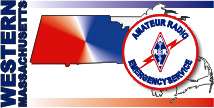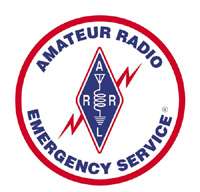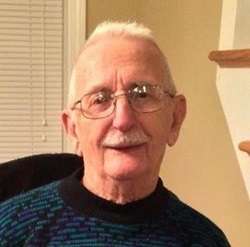Hello, fellow Western Massachusetts Radio Amateurs !!
I’m sending this email to both introduce myself and to update you on my plans to revitalize the Amateur Radio Emergency Service (ARES) program within our Section. My name is Bob Meneguzzo, K1YO, from Southwick MA, and I’m your new Section Emergency Coordinator (SEC) for the five counties that comprise the WMA Section.
For many of us, a large part of Amateur Radio’s appeal is the potential it offers to serve our respective communities using the communications and technical skills we’ve developed while engaging in its wide-ranging activities. Frequently, segments on the media or in publications reflect what seems to be an increasing incidence of hazardous situations where amateur radio has played an important role in preserving the health and welfare of the public. This is entirely due to the skill and dedication of those amateurs involved. We need to ensure that these efforts are effective, with an eye to continuous improvement through practice and the application of new developing technologies available to us.
Various agencies also depend upon our assistance during emergencies, and the requirements they ask of us have grown significantly in recent times. So we will need to comply with their changing needs while at the same time keeping ourselves proficient at our technical and communications skills.
Here are the ARRL’s comment on the changes to the current ARES program membership:
“Previously, participation in ARES was open to all interested Amateur Radio operators. The only requirements were a valid FCC license and an interest in serving. There were no requirements for ARES participants to be trained and no skill sets were specified. In contrast, many of the partner agencies that ARES serves have mandated and structured training programs where all participants receive the same training and, when activated, or assigned to serve an agency in the field would be qualified to assume any position to which they were assigned.
Therefore, changes have been made to resolve this issue identified by our partners about the inconsistent training required of ARES participants. Under this policy, a national standard for qualification in ARES is instituted to address the needs of our partners. Training is expected to be phased in over time and will be required for all ARES participants. Such training will be measurable and recognized across a broad spectrum of the country by served partners.”
The ARES program has been developing in line with this; it recognizes the need for compliance by addressing several key aspects … Organization, Training, Qualification and Credentialing.
Effective Organization is the base requirement and it needs to take place at the County level through the efforts of the named Emergency Coordinators (ECs) and their Assistants who have key knowledge of their local resources and government agencies.
Training needs to be provided regularly in the form of drills and exercises that emulate emergency situations, but also falls under the Qualification aspect through courses such as ARRL’s EC-001 and FEMA offerings available to individual ARES members.
Credentialing is increasingly required by agencies we assist … and is essential for those amateurs deployed with or embedded in the operations of these entities.
My activities as SEC obviously need to focus on these areas, but I recognize that not all of us want to take a role in ARES that might consume too much of our time. As our Section Manager notes, ARES ‘should not be a job’ for anyone. But I feel that we must offer everyone an opportunity to participate at a level they would be comfortable with. To accomplish this I’d like to establish another level of ARES participation for the WMA Section: Local Reserve.
The Local Reserve group members would not be expected to do anything besides participate in net operations (normally or during an activation) although they might be asked to provide weather or damage reports for their local neighborhood if requested by their Emergency Coordinator. This is similar to the ARRL Level 1 Member described below although they would not be field or agency deployed for anything. Training requirements (minimal) are the same as Level 1 also.
Following are the current ARES Membership Levels ….
Level 1 — This is the primary level for those who choose a non-leadership role as well as those new to Amateur Radio or emergency communications. This introductory training is conducted by the local ARES group to meet their needs and those of their served agency or partners. This training could be formal or informal, and would introduce the ARES participant to the fundamentals of emergency communications and provide instruction on how participants are to conduct themselves while serving in the field or otherwise activated. Participants may elect to remain at this level, or any level, based upon the extent of their desired ARES involvement.
Level 2 — To qualify for this level, participants shall have completed the following courses: ARRL’s EC-001 Introduction to Amateur Radio Emergency Communications (a no-cost program) and FEMA IS-100, IS-200, IS-700, and IS-800. Participants are also encouraged to take advantage of training opportunities available through partners to enhance their knowledge and skill set.
Level 3 — This level of training prepares ARES participants to take on leadership positions such as EC, ADEC, DEC, ASEC, and SEC, and other designated positions in the ARES program. Participants are required to complete ARRL’s EC-016, Emergency Communications for Management, when available along with FEMA Professional Development Series of courses IS-120, IS-230, IS-240, IS-241, IS-242, IS-244, and IS-288 the Role of voluntary Organizations in Emergency Management. Participants also are encouraged to complete the FEMA courses IS-300, and IS-400 should they be available locally.
So we see here that there is a broad set of choices of participation in ARES … that hopefully will meet the commitment levels of many of us. You can participate minimally, or continue your development to higher levels should you choose to do so!
I sincerely hope that you will consider becoming a part of ARES if you are not already a member and to help make this a team that we can be truly proud of in our service to our communities!
With that said, there is ONE very important thing I need to ask of you: to register for new membership on our WMA ARES website or login as a member to update your existing one. Please sign-in if you have not done so in 2018 or later. I am trying to clean up our membership database and there are a LOT of folks that have shown no Log-In activity prior to 2018 (or never!).
To register for, renew, or update your WMA ARES membership, choose Emergency Communications from the main menu of this website, scroll down to the ARES Membership line in the document to register or Login.
Thank you for your time today — I hope to meet up with you at your club meetings and will keep you posted via the WMA ARES website on my progress at the many tasks ahead.
I am in 95% LISTEN mode right now … if you have comments, questions or suggestions please do not hesitate to contact me. I sincerely appreciate your inputs,
Very 73,
Bob Meneguzzo – K1YO
Section Emergency Coordinator


 It is with sad regret to announce Ellis Rud N1MWJ has become a silent key on Nov 27.
It is with sad regret to announce Ellis Rud N1MWJ has become a silent key on Nov 27. The ARRL has been asked to share the following from the Communications Branch Director of the Florida Division of Emergency Management:
The ARRL has been asked to share the following from the Communications Branch Director of the Florida Division of Emergency Management: It is with regret and sadness that we must convey that the Southern Worcester County DEC Bob Beausoleil KA1OTQ has recently passed away and become a Silent Key.
It is with regret and sadness that we must convey that the Southern Worcester County DEC Bob Beausoleil KA1OTQ has recently passed away and become a Silent Key.